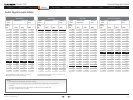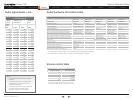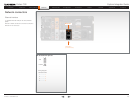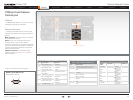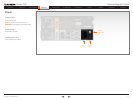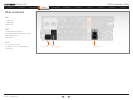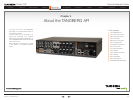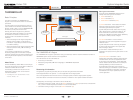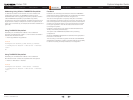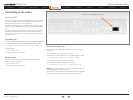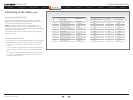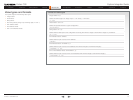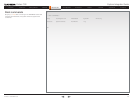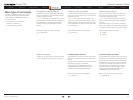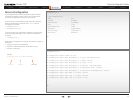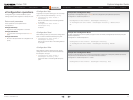
D14128.02—NOVEMBER 2008
34
Codec C90
System Integrator Guide
Contents Introduction Getting Started Interfaces About the API xConfiguration xCommand xStatus Cameras Appendices Contact us
About the API
Addressing Using XPath or TANDBERG SimplePath
To address information in the hierarchic structure of Status and
Configuration information, the TANDBERG systems support
abbreviated XML Path Language (XPath) and a proprietary notation
called TANDBERG SimplePath (only available using XACLI).
This allows the user/control application to address everything from a
single element of data (for example the call rate of a specific call) to
larger parts of the hierarchy (for example all information available for a
given call).
Using TANDBERG SimplePath
Addressing the 1st DNS Server Address of the 1st Network:
Each level is separated with a slash (‘/’). Item numbers are added in
brackets after the element name:
Network[1]/DNS Server[1]/Address•
Example:
xConfiguration Network[1]/DNS Server[1]/Address
*c xConfiguration Network 1 DNS Server 1 Address:
“test”
OK
Using TANDBERG SimplePath
Addressing the 1st DNS Server Address of the 1st Network:
Both levels and item numbers are separated with white spaces:
Network 1 DNS Server 1 Address•
Example:
xConfiguration Network 1 DNS Server 1 Address
*c xConfiguration Network 1 DNS Server 1 Address:
“test”
OK
Feedback
Feedback is an extremely powerful feature where the TANDBERG
system actively returns updated status and configuration information
to the user/control application whenever changes occur.
The user/control application can specify what parts of the status
and configuration hierarchies it wants to monitor by using XPath. The
user/control application can thereby limit the amount of information it
receives from the target system to only those parts being of interest
for the given application. This will also reduce the load on the link
connecting the systems.
Feedback is supported on both XACLI (RS-232/Telnet/SSH) and
TXAS (HTTP/HTTPS) simultaneously.
The system uses TANDBERG SimplePath when presenting
configurations.
XPath and TANDBERG SimplePath are described thoroughly later in
this section of the manual.
The structuring of information together with XPath and TANDBERG
SimplePath for addressing, makes up powerful features as the ability
to search and setting of multiple instances of a configuration.



